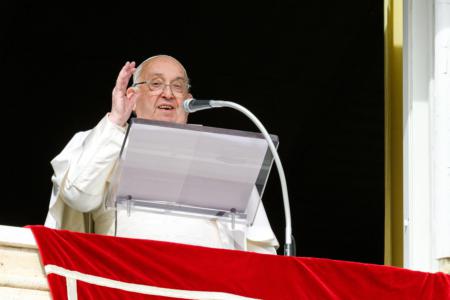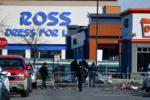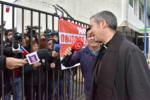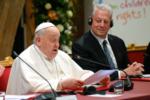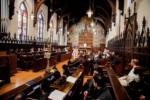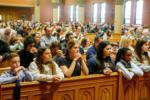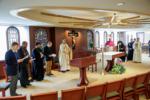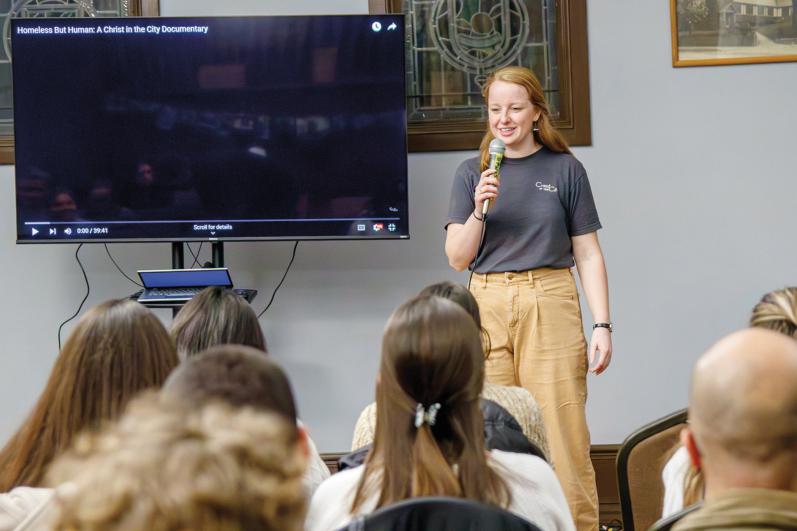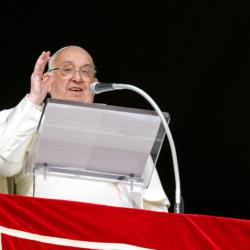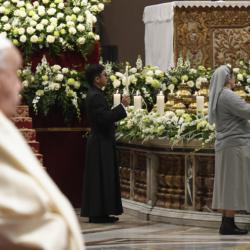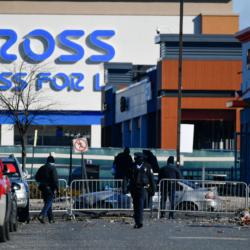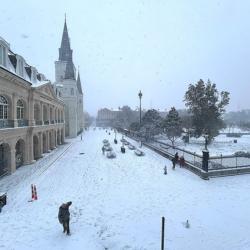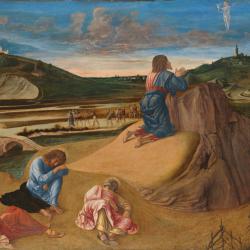Brookline documentary screen explores ministry to homeless
BROOKLINE -- It was the first time in Chuck's life that anybody celebrated his birthday.
Chuck, a homeless man living in the Denver area, had lived on his own since he was 12 years old. There were times in his life when he felt he was destined to "die on the streets."
Then, he met missionaries from Christ in the City, a Denver-based Catholic ministry geared toward befriending and serving the homeless. They grew close to Chuck and gave him the first birthday party of his life. With the missionaries' help, Chuck moved into permanent housing in 2021.
"Homeless but Human," a 2023 documentary about Christ in the City's work, tells the stories of Chuck and other homeless people helped by the ministry. Christ in the City missionaries hosted a screening of the documentary at St. Mary of the Assumption Parish in Brookline on Dec. 2.
The screening was held in partnership with Encounter, a Boston-based homeless ministry founded in 2020 by Colleen McDonough and Monet Souza. McDonough and Souza were inspired to found Encounter after spending a summer volunteering with Christ in the City.
"Everything that you're seeing is the reality of being a Christ in the City missionary," McDonough said before the film started. The filmmaker "went out and got to know these people and became friends with them himself. All of these interviews were done with great reverence for our friends in the street."
The documentary showed the missionaries, all of whom are between the ages of 18 and 28, getting to know homeless people by listening to their stories and carrying out basic acts of kindness. Missionaries serve lunches, shave beards and play cards, among other activities. The missionaries live communally in "poverty of preference." Everything in the communal living space -- including the missionaries' shoes -- is collective property.
"The goal of the program is to form young adults and send them out in the world," McDonough said.
Encounter volunteer Emily Rittenour told The Pilot that ministries like Encounter and Christ in the City treat the streets like a front porch, providing unconditional welcome and hospitality.
"Something as simple as eye contact and getting to know them and getting to know their name is the most important," she said.
When many others simply walk past homeless people and pretend they don't exist, even a smile can mean a great deal.
"The most important thing is that we're walking the same routes regularly so that we can build a friendship," she said. "It's really exciting when we get to know somebody, and we recognize them and say their name."
She added that "people outside on the street are ironically a lot friendlier than people at the supermarket or at college."
After the screening, Ritenour and fellow Encounter volunteer Hayden Cowart hosted a question-and-answer panel with Christ in the City missionaries America McCoy, Noah Olano, and Devin Halford.
McCoy and 11 other Christ in the City missionaries spent three weeks in Boston with Encounter this summer. McCoy said that she was planning on a brief stint as a missionary before going back to her career, but the work called to her.
"The Lord had so much formation, so much more growth that he desires for me," she said, "and the poor were infinitely more beautiful than I ever imagined."
Halford described Christ in the City's mission as giving homeless people the motivation to improve themselves by reminding them of their inherent dignity.
"They're in a surviving mode rather than a striving mode," he said.
Christ in the City helps homeless people find case managers and resources, but its goal is primarily friendship. Halford said that when homeless people find permanent housing, that housing "cannot be without community." Often, homeless people are even lonelier in permanent housing than they were on the street.
Rittenour said that there are many social services for homeless people in Boston, creating "a unique freedom" for Encounter's friendship-based ministry.
The panelists also discussed the October clearing of the tent city on the intersection of Boston's Melnea Cass Boulevard and Massachusetts Avenue, commonly known as Mass and Cass. The Encounter missionaries explained that following the clearing, Boston's homeless population became more evenly distributed throughout the city.
"We were concerned for some people," Rittenour said. "Where are they going to go? When they leave, we don't know where they are."
The missionaries said they spent a lot of time praying for those whom they have lost contact with.
